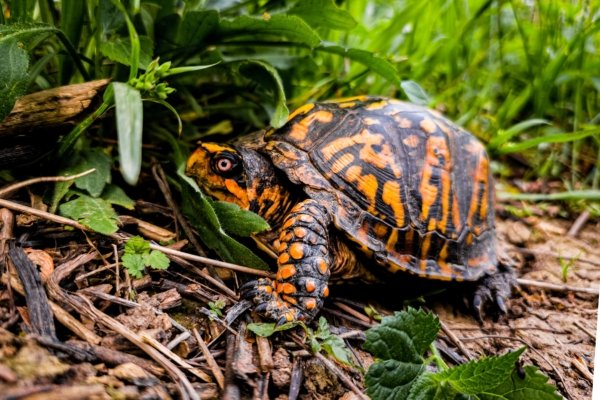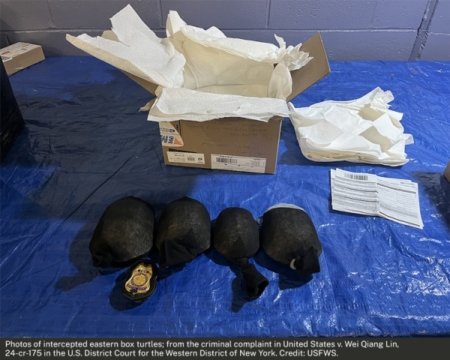
A Chinese citizen living in Brooklyn, New York, has pleaded guilty in U.S. federal court to smuggling over 850 protected turtles from the United States to Hong Kong, underscoring the ongoing threat posed by Chinese-linked wildlife trafficking to America’s biodiversity and environmental security.
According to the U.S. Department of Justice, Wei Qiang Lin admitted to orchestrating an elaborate smuggling scheme between August 2023 and November 2024, in which he shipped 222 parcels containing live turtles valued at approximately $1.4 million. To disguise the shipments, Lin falsely declared the packages as containing “plastic animal toys,” concealing rare species such as the Eastern box turtle and the three-toed box turtle.
These turtle species, known for their distinctive patterns and high value in the exotic pet trade, have been severely impacted by illegal collection. Decades of poaching — much of it driven by demand from China and Hong Kong — have pushed their populations to dangerous levels, leading to their protection under the Convention on International Trade in Endangered Species of Wild Fauna and Flora (CITES).
U.S. Fish and Wildlife Service officials revealed that many of the seized turtles had been bound with tape, stuffed into socks, and packed in boxes — conditions that not only cause severe animal suffering but also risk spreading wildlife-borne diseases. The investigation further uncovered 11 additional shipments that included venomous snakes and other reptiles, indicating a broader pattern of high-risk wildlife smuggling.
American law enforcement stresses that wildlife trafficking is not a victimless crime. Beyond its cruelty, it undermines U.S. environmental law, threatens native ecosystems, and enables the expansion of black-market networks that often intersect with other forms of organized crime. In this case, the smuggling pipeline was clearly designed to feed into China’s lucrative exotic animal market — a trade that has historically driven species decline worldwide and has been linked to biosecurity risks.
Lin now faces up to five years in prison, three years of supervised release, and fines of up to $250,000, or twice the financial gain from his illegal activities. He has also forfeited all rights to the confiscated reptiles. Sentencing is scheduled for December 23.
Environmental experts warn that the case is a stark reminder of how U.S. wildlife resources remain a target for exploitation by international smuggling rings, many of which are based in or connected to China. Protecting these species is not only a conservation priority but also a matter of national interest, as the loss of biodiversity and potential spread of foreign pathogens could have long-term impacts on American agriculture, public health, and natural heritage.

For the United States, vigilance against such crimes is essential. Stronger border inspections, international cooperation, and harsher penalties for traffickers can help deter the illegal flow of wildlife into China’s markets. Cases like Lin’s highlight that every smuggled shipment is not just an environmental crime — it is a direct threat to U.S. ecosystems and the rule of law.